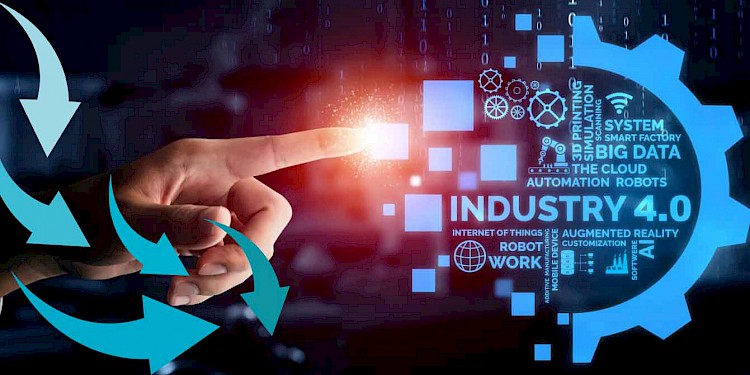
What is Industry 4.0?
Industry 4.0 is the Fourth Industrial Revolution that makes production tools efficient, flexible, and "smart" through the advanced integration of digitalization, automation, artificial intelligence, and data analytics. Sustainability, resource conservation, energy efficiency, and the "Smart Factories" vision are at its core; thus, it aims for environmentally sensitive, flexible, and high value-added production.
The Effects of Industry 4.0 on Environmental Sustainability: An Evaluation from the Perspective of Economics and Administrative Sciences
Industry 4.0, also known as the Fourth Industrial Revolution, which focuses on the advanced use of digitalization and automation, aims to make production tools more efficient and flexible. Sustainability, which can be shown as the main objective, is at the heart of the Industry 4.0 initiative. Inefficient use of resources hinders sustainability. Therefore, resource saving, high efficiency, and the "smart" transformation of production processes are among the goals of this new revolution. "Smart Factories," which can be created by bringing together advanced technological opportunities, reflect the Industry 4.0 vision. This is how the increase in production speed and the decrease in costs are ensured. It is also understood that product quality will increase, flexibility in production will rise, and diagnosis, which is the first step of solution in potential problems, will become easier.
The focus of the Industry 4.0 revolution on a sustainable production approach is also important in terms of environmental awareness. It is not possible to achieve sustainability in any area without environmental sustainability. The lack of sensitivity to resource efficiency and sustainability in the traditional industrial approach leads to environmental disasters and weakens the production mechanism. The tracking and optimization of every stage of production down to the finest detail with the opportunities provided by the Industry 4.0 initiative primarily increase energy efficiency. This also helps save raw material and water usage. Moreover, the failure of waste management, which is one of the leading causes of environmental disasters, becomes manageable with these new opportunities. Thus, it becomes possible to cope with air pollution in cities and combat global warming.
Green economy and zero waste goals are some of the principles of the Industry 4.0 revolution in the context of environmental sustainability. Within the framework of these goals, it may be possible to reduce the carbon footprint, which is the measure of the damage caused by human activities to the environment. Reducing the carbon footprint and using natural resources efficiently helps protect biodiversity, which is one of the basic dynamics of environmental sustainability. At this point, it should not be forgotten that it will be costly for small businesses, in particular, to use these new technologies and prioritize environmental sustainability goals. Therefore, the compelling measures directed at businesses in the context of environmental sustainability must be applicable. At the same time, targets should not exceed ethical boundaries for any purpose.

Businesses must incorporate the innovations covered by Industry 4.0 to achieve many goals. Especially in the context of strategic management, they should integrate technological opportunities that can be evaluated within Industry 4.0, including artificial intelligence and big data, into their management understanding to gain competitive advantages and ensure sustainability. The hierarchical structure, which has a central role in the traditional management approach, should highlight cooperation with a more flexible organization chart in this new management perspective. Thus, healthier and more accurate decisions can be made thanks to this cooperation.
Industry 4.0 is as much related to the field of Business Administration as it is to the field of engineering. Issues such as decision-making processes, production mechanisms, and the greater transparency and accessibility of supply chains are directly related to the business field and are points that need to be constantly developed. Especially the parts of the production processes related to finance must be optimized with the wide opportunities provided by new technological developments. The providers of this, even if they are not seen within the production processes, are the graduates of the Faculty of Economics and Administrative Sciences (FEAS). FEAS students and graduates should have a digital perspective towards applications beyond theoretical knowledge and constantly develop it. Those who manage this change process and adapt can also make serious contributions to businesses within the framework of new production methods. At the same time, the biggest goal of these faculties, located in every region of Turkey, should be to adapt themselves to developing conditions, update their curricula, especially focusing on artificial intelligence, and train students who will contribute to production processes. Businesses, from a strategic management perspective, should also make FEAS students and graduates part of their decision-making processes in line with both Industry 4.0 and environmental sustainability goals.
Writer:
Erzurum Technical University
Faculty of Economics and Administrative Sciences




































